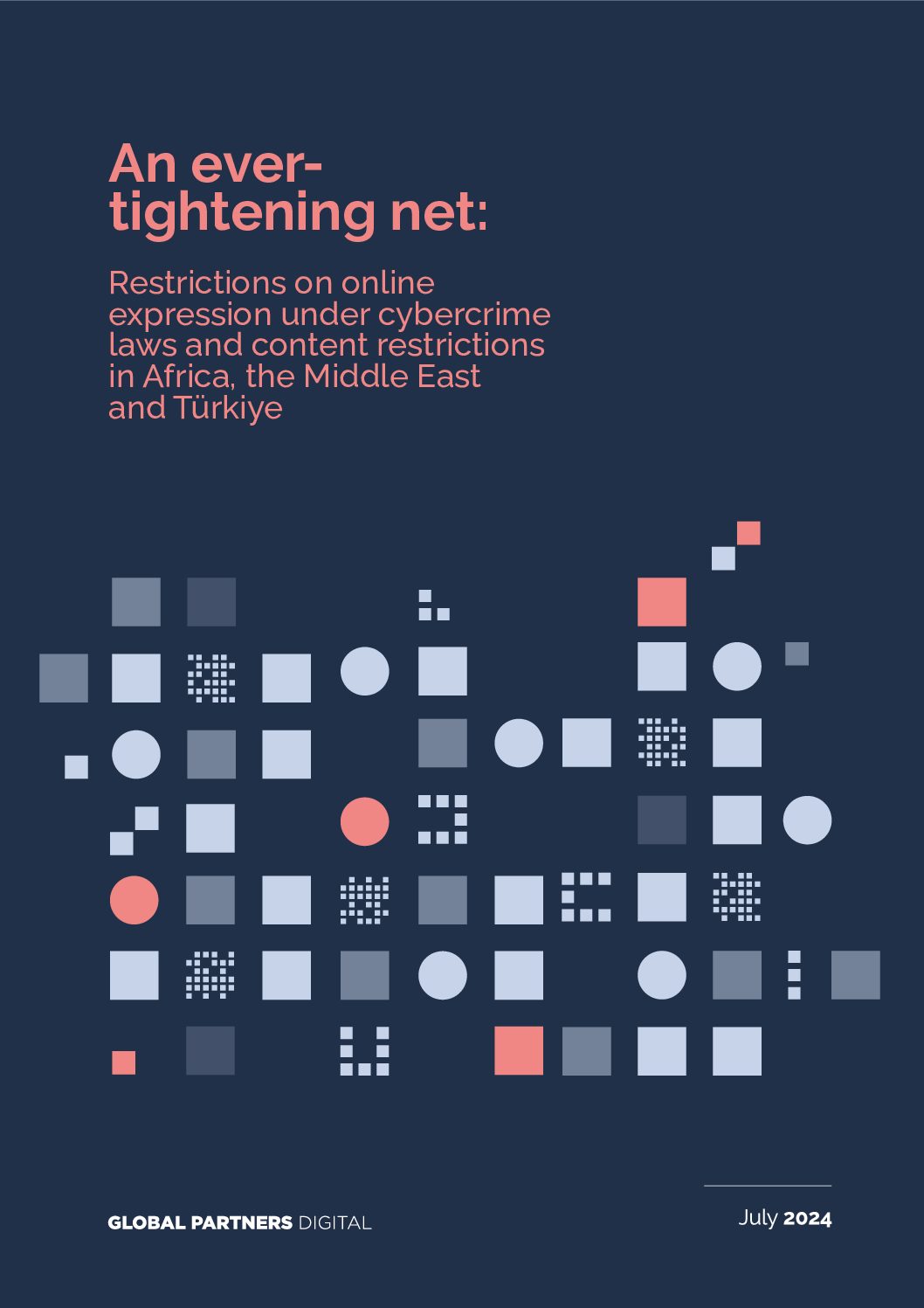An ever-tightening net: Restrictions on online expression under cybercrime laws and content restrictions in Africa, the Middle East and Türkiye
This report seeks to highlight the dangers of cybercrime legislation and online content regulations in Africa, the Middle East and Türkiye which restrict online expression in ways that violate international human rights law. It also aims to provide strategic guidance for civil society organisations and technology companies to push back against these restrictions and to advocate for more rights-respecting approaches to cybercrime and online content governance.
Our findings are grounded in a broad review of 155 legal frameworks which address illegal or harmful online content or activity across 69 countries in Africa, the Middle East and Türkiye. Through research and analysis based on international human rights law, we demonstrate that many of these laws include restrictions on online speech which are incompatible with international standards and guidance on permissible restrictions on freedom of expression.
The report also includes seven in-depth case studies, produced with insight from local experts, which illustrate the ways in which these cybercrime laws and content regulations are being used to crush dissent and crack down on human rights defenders, political dissidents, journalists, LGBTQ+ individuals and other marginalised groups seeking to express themselves online. We provide concrete recommendations for technology companies and CSOs seeking to defend human rights and online civic space in these repressive environments, and outline the essential components of cybercrime and content regulations that respect and promote human rights.
This report was authored by Jacqueline Rowe on behalf of Global Partners Digital, with input from Maria Paz Canales (Head of Legal, Policy and Research, Global Partners Digital) and, Ian Barber (Legal Lead, Global Partners Digital).
The report was also strengthened by some case studies, feedback and insights from ARTICLE 19 regional offices in West Africa, East Africa, Tunisia and MENA; Dr Ernest Yaw Ako Esq., Barrister and Solicitor of the Supreme Court of Ghana and Lecturer, Faculty of Law, University of Cape Coast, Ghana; John Frinjuah; Mohammad Shamma, the Country Representative for DIGNITY (Danish Institute Against Torture) Jordan Office; and Sawsan, Zaideh, media researcher and independent journalist.
The development of this report was made possible with support from Meta’s Africa, the Middle East and Türkiye Public Policy team. Global Partners Digital had full editorial independence on the content of the report.
